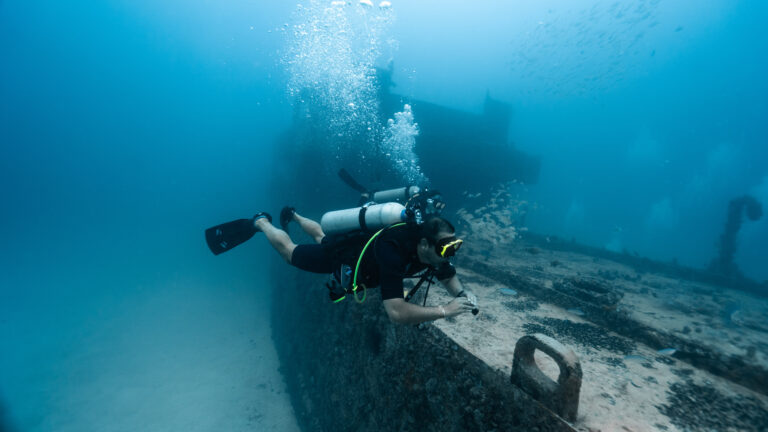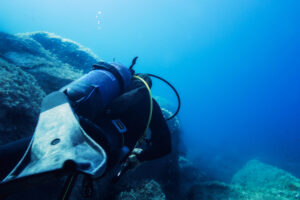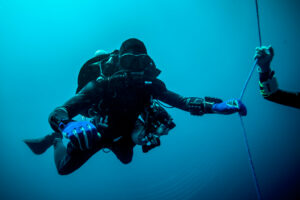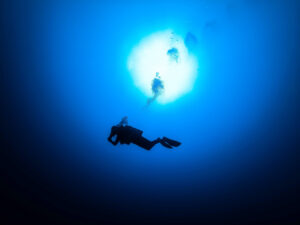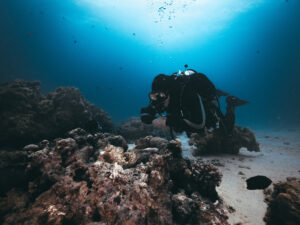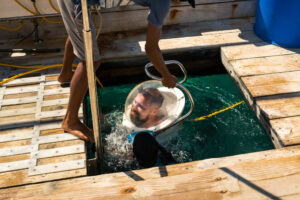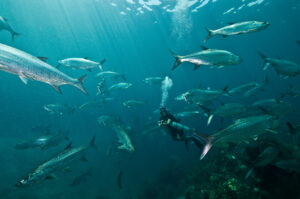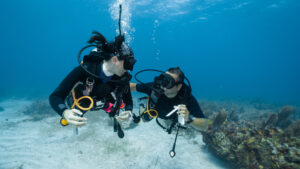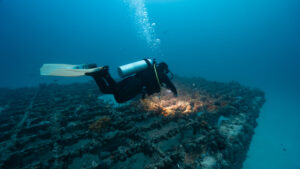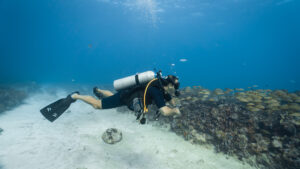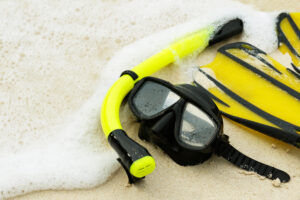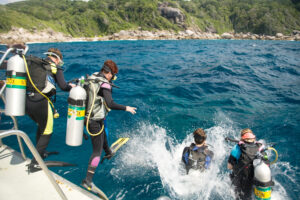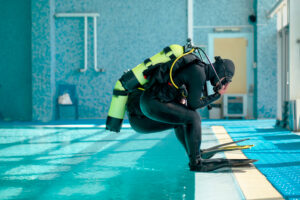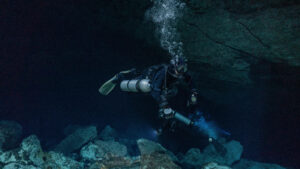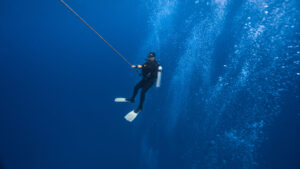What is Confined Water Diving?
Confined water, a term widely used in the scuba diving community, refers to a dive site where the water is enclosed and bounded sufficiently, creating a controlled environment free from the influence of geographic or weather conditions. Such environments are ideal for safe scuba training, providing instructors and students with a stable setting to learn and practice essential skills before advancing to open water dives. The most common example of confined water is a swimming pool; however, other bodies of water, such as quarries or calm, shallow bays, may also serve as confined water environments.
History and Development
The concept of confined water as a training environment has its roots in the early days of recreational scuba diving. In the mid-20th century, scuba diving emerged as a popular recreational activity, leading to the development of standardized training programs to ensure divers’ safety. The confined water environment provided an ideal solution, as it allowed for the controlled practice of essential skills and the gradual introduction of more advanced techniques. Over time, the use of confined water environments has become a fundamental aspect of scuba diving training worldwide.
Types of Confined Water Environments
- Swimming Pools: Swimming pools are the most common confined water environments, offering a clean and controlled setting for scuba training. Pools provide consistent water temperature, depth, and visibility, enabling instructors to closely monitor students’ progress and ensuring a safe learning environment. Most scuba diving certification courses begin with pool sessions to introduce students to the basic skills and equipment required for diving.
- Quarries: Man-made or natural quarries filled with water can also serve as confined water environments. These sites offer more realistic diving experiences, often featuring submerged structures or geological formations that divers might encounter in open water. Quarries may also have variable depth levels, which can be beneficial for practicing buoyancy control and other skills. However, quarries may have limited visibility and colder water temperatures compared to swimming pools, so students must be prepared for these conditions.
- Sheltered Bays and Coves: In some cases, sheltered bays or coves with calm, shallow water can be utilized as confined water environments. These locations provide natural settings with the advantages of a controlled environment, such as minimal current, waves, or boat traffic. Such locations can offer an ideal transition between pool training and open water dives.
Benefits of Confined Water Training
- Safety: The primary advantage of confined water training is the increased level of safety. In a controlled environment, instructors can easily supervise and intervene if necessary, minimizing risks for beginners. Additionally, students can focus on learning and mastering skills without the distractions and potential hazards associated with open water environments.
- Skill Development: Confined water training allows students to develop essential skills in a controlled, systematic manner. Gradually increasing the complexity of tasks and introducing new equipment fosters confidence and competence in divers. The ability to practice skills repetitively in a consistent environment contributes to skill retention and muscle memory, which is crucial for safe and enjoyable diving experiences.
- Controlled Conditions: Confined water environments provide consistent conditions, such as temperature, depth, and visibility. This allows students to focus on learning the necessary skills without having to adapt to changing conditions. For example, beginners can practice buoyancy control, regulator recovery, and mask clearing without worrying about currents or varying depths.
- Transition to Open Water: Confined water training serves as a stepping stone to open water diving. By mastering skills in a controlled environment, students gain confidence and competence before moving to more challenging open water environments. This staged approach to learning reduces anxiety and improves overall dive safety.
Key Takeaways
Confined water environments are an integral component of scuba diving training, providing a safe and controlled setting for the development of essential skills and techniques. By offering a stable environment with consistent conditions, confined water training allows students to focus on mastering foundational skills and building confidence before progressing to more challenging open water dives. The most common confined water environments include swimming pools, quarries, and sheltered bays or coves, each offering unique benefits and challenges for scuba diving training.
In addition to the benefits mentioned above, confined water training also provides the opportunity for instructors to closely monitor and evaluate students’ progress. This personalized feedback and guidance are crucial for ensuring that divers have a thorough understanding of the skills and techniques necessary for safe and enjoyable diving experiences. Furthermore, the controlled environment of confined water allows for tailored training sessions that cater to individual needs, including addressing specific concerns or areas of difficulty.
As the sport of scuba diving continues to grow in popularity, the importance of confined water training cannot be understated. It serves as the foundation for responsible and well-prepared divers, instilling essential knowledge, skills, and respect for the underwater world. Confined water training has proven to be an effective method for reducing the risks associated with diving and ensuring that scuba enthusiasts are equipped with the tools necessary to explore the wonders of the underwater realm safely.
Organizations such as PADI (Professional Association of Diving Instructors), SSI (Scuba Schools International), and NAUI (National Association of Underwater Instructors) all emphasize the importance of confined water training in their certification courses. These organizations, among others, have developed standardized curricula that utilize confined water environments to teach basic skills, such as equipment assembly, buoyancy control, and emergency procedures, before progressing to more advanced techniques.
As a testament to the value of confined water training, dive accidents and fatalities have significantly decreased since the widespread adoption of standardized training programs that incorporate confined water practice. The continued emphasis on confined water training will ensure that future generations of divers are well-prepared and equipped to enjoy the underwater world safely and responsibly.
Confined water training serves as a critical component in the education and development of scuba divers. The controlled environments provided by swimming pools, quarries, and sheltered bays or coves allow for the safe and systematic practice of essential skills, fostering confidence and competence in divers. As the foundation of scuba diving education, confined water training plays a vital role in promoting safety, responsibility, and enjoyment within the sport.

